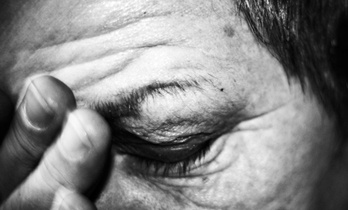Poll documents ongoing emotional harm from BP oil disaster

Two years after the BP oil spill in the Gulf of Mexico, Gulf Coast residents continue to suffer emotional fallout from the disaster.
That's the conclusion of a new survey Gallup conducted using its Emotional Health Index tool, which looks at daily worry, stress, sadness and clinical depression. The survey found that the emotional health of residents of Gulf-facing counties in Louisiana, Mississippi, Alabama, Florida and Texas has declined by 1.6 percent since the period before the spill -- at the same time the emotional health of residents of inland counties in Gulf states and non-Gulf states has improved.
The changes in Gulf Coast residents' Emotional Health Index scores "are statistically significant and meaningfully large," according to Gallup's Dan Witters.
"These findings provide supporting evidence that whatever improvements have been made to the physical environment of the Gulf area, the damage to residents' emotional health continues to persist," Witters writes.
The survey also found that residents of Gulf Coast-facing counties were 31 percent more likely to report a diagnosis of depression in January through April of this year than before the BP oil spill. The respondents were asked about a diagnosis occurring at any point in their lives, so this does not necessarily mean the disaster caused the depression. However, Gallup points out that the increase in depression diagnoses among Gulf Coast residents comes as such diagnoses were statistically unchanged in the rest of the country -- and amid a slight decline in depression in inland counties in the Gulf states.
But in a bit of good news, the survey found that Gulf Coast residents' negativity declined slightly after peaking in the winter/spring of 2011.
The Gallup poll confirms the findings of "Troubled Waters," the recent Facing South/Institute for Southern Studies report on the BP disaster produced in collaboration with Bridge the Gulf and the Gulf Coast Fund. The report documented how many Gulf Coast communities have reported a rise in mental health problems since the oil spill, with surges in drug abuse and domestic violence. Local leaders blamed not only the BP disaster alone but the repeated nature of disasters affecting the region.
"The stressors of the hurricane [Katrina], the BP oil spill, the housing bubble bursting, the economic downturn -- for the Southeast portion of the United States it seems that we've just had one thing after another," said Teresa Bettis, executive director of the Center for Fair Housing in Mobile, Ala. "The stress of it has caused folk who were fine before to now be faced with mental health issues."
Tags
Sue Sturgis
Sue is the former editorial director of Facing South and the Institute for Southern Studies.
